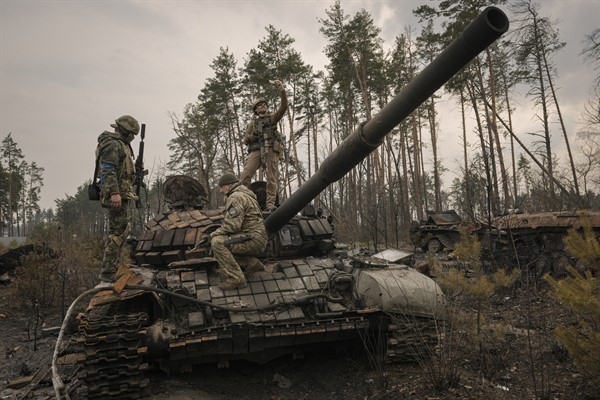At a time when old certainties have been shaken and the pace of events is overwhelming, it can be difficult to assess what the long-term impact of a geopolitical shock might be for the global order. In the immediate aftermath of Russia’s invasion of Ukraine, the widespread shock that such a calamity could befall millions of people made it difficult to think through the unanticipated consequences of such a profound rupture of the international state system. Yet after five weeks of brutal war triggered by a criminalized Russian state under President Vladimir Putin, there are now a few indicators that can help give a sense of how the world around us is changing, and what the long-term impact of these changes might be.
In the weeks leading up to the invasion, the dominant assumption among Western officials and security analysts was that the Ukrainian military would be swiftly overwhelmed by the Russian military and that Kyiv would fall within days. Initial estimates from U.S. government sources for how long the Ukrainian state could hold on ranged from 96 hours on the high end to just 48 hours on the low end, and Western policymakers braced for the Russian occupation of Ukraine—and the long insurgency in response—that their analysts had predicted.
Yet Kyiv stubbornly refused to fold in the following weeks, as the Russian army’s delusional strategic objectives and dysfunctional military culture left it vulnerable to cleverly coordinated Ukrainian counteroffensives that culminated in Russia’s chaotic retreat from northern Ukraine last week. After a month of high-intensity warfare between states, political elites in the West faced the realization that a medium-sized European state fighting for its survival had the political will, popular mobilization and technological savvy to hold its own in a military conflict with a great power that had until now claimed to be a global player.

